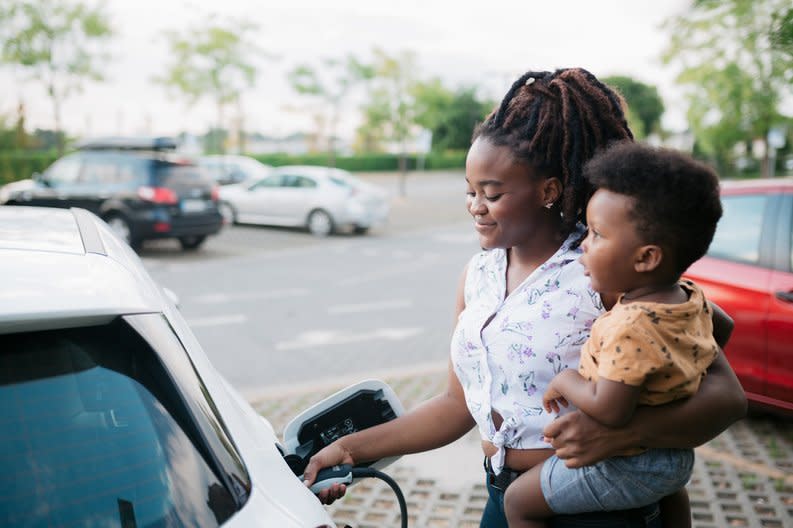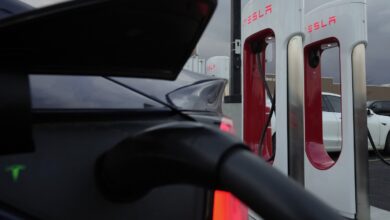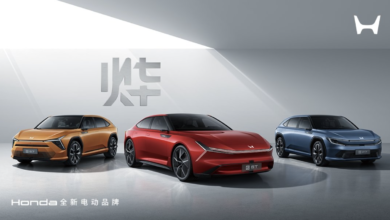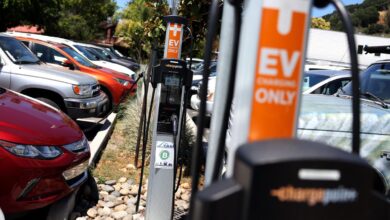3 Questions to Ask Yourself Before Buying an EV in 2024


Buying an electric vehicle (EV) is a great way to do your part for the planet, but it’s not a decision you want to make lightly. Though they can be cheaper in the long run, EVs take a serious toll on your wallet in the short term. They also have certain limitations at present that could make them a poor choice for some drivers.
Here are three important questions worth asking before you purchase an EV. If any of them give you pause, it might not be the best decision for you right now.
1. Does the model you’re looking for qualify for EV tax credits?
The average new EV cost $53,469 in July 2023, according to Kelley Blue Book. That’s roughly $5,000 more than the typical gas-powered vehicle. It’s true there are some used EVs available, but these are less common. If you want to make the switch, more than likely, you’ll have to pay up for a new model.
To help with this issue, the federal government has issued tax credits of up to $7,500 for new EV purchases and $4,000 for used EV purchases. But only certain models qualify. You also need to meet certain income requirements to claim this credit, which you can apply at the point of sale to reduce your purchase price.
It’s best to check the list of eligible vehicles before you go ahead with the purchase. If the model you’re interested in doesn’t qualify, you may want to consider a different one.
Read more: check out our picks for the best car insurance companies
2. Can you afford all the other costs that come with owning an EV?
The purchase price is only part of what you’ll have to spend to own an electric vehicle. You’ll also need auto insurance, and the premiums for EVs are quite a bit higher than rates for their gas-guzzling counterparts. That’s because EVs have more advanced components and fewer technicians know how to work on them.
Before purchasing your EV, you may want to price out rates with some of the best car insurance providers to see if it’s something you can afford. Some companies have discounts for EVs, which might help you save a little.
Then, there are charging costs to think about. Public charging stations are becoming more commonplace, but they’re usually slower than in-home chargers. These give you the freedom to charge your vehicle whenever you like, including overnight when you may pay less for electricity. But it’s possible to spend well over $1,000 to have one of these installed in your home.
You can always put that off for later if you can’t afford it right now. But then you need to make sure you have a plan for how you’ll charge your vehicle in the meantime.
3. Is the area where you’ll be driving hospitable to EVs?
Public EV charging stations are becoming more common, as discussed above, but there still aren’t nearly as many of them as there are gas stations. This can lead to difficulty finding a charging station and long lines when you get there. Even worse, many charging stations are poorly maintained. If a station isn’t working, you may have to go searching for a new one.
This winter, we’ve also seen another issue with EVs: their batteries don’t do very well in cold temperatures. For those of us in the northern half of the country, that could be a serious problem.
If you worry about either of these things becoming issues, an EV might not be the right choice for you right now. A hybrid could be a great alternative, though.
It might be frustrating if you want an EV but aren’t ready to purchase one. But it’s not all bad news. As time goes on, prices are likely to come down, technology is going to improve, and that could translate into lower insurance and repair costs as well. Keep checking prices every few months until you find something that fits into your budget.
Our best car insurance companies for 2024
Ready to shop for car insurance? Whether you’re focused on price, claims handling, or customer service, we’ve researched insurers nationwide to provide our best-in-class picks for car insurance coverage. Read our free expert review today to get started.
We’re firm believers in the Golden Rule, which is why editorial opinions are ours alone and have not been previously reviewed, approved, or endorsed by included advertisers. The Ascent does not cover all offers on the market. Editorial content from The Ascent is separate from The Motley Fool editorial content and is created by a different analyst team.The Motley Fool has a disclosure policy.
3 Questions to Ask Yourself Before Buying an EV in 2024 was originally published by The Motley Fool



